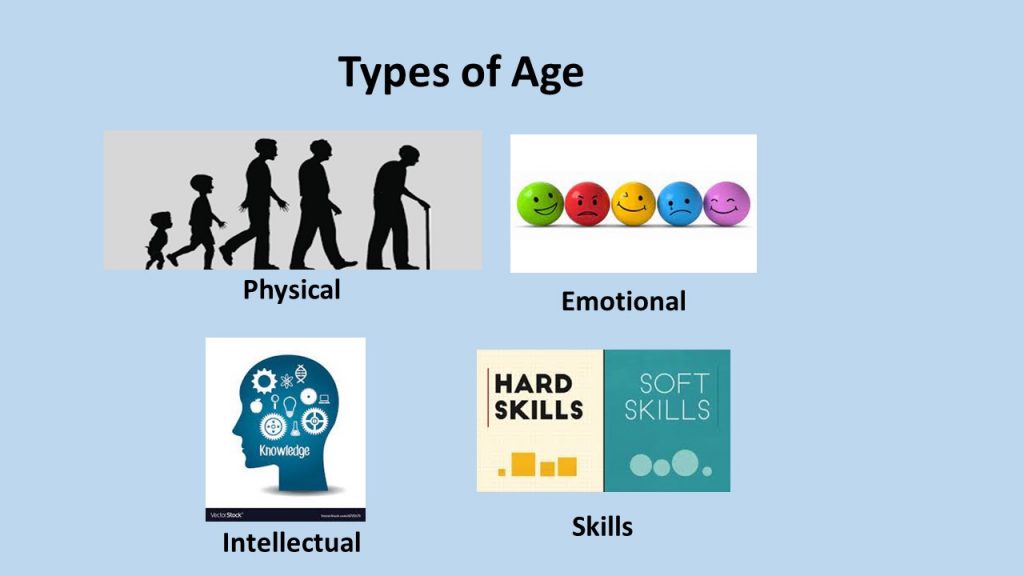
129. What Is Your Age? | 請問貴庚?
– Musings of Dr. Jamie C. Hsu, 12.5.2021
The older we get, the more discrepancies there are between our different types of age: chronological age, physical age, emotional age, intellectual age, and skillfulness age.
The discrepancies of various ages can sometimes create discomfort and frustration. What we want to do may not be supported by what we can do physically. What we feel emotionally may not be suitable for our chronological age. What we aspire to accomplish may not be possible with our obsolete skill set. The older we get, the more frequently we experience such gaps. The sooner we realize this is happening, the better we can make adjustments to live a harmonious life.
The most obvious age-related problem we face is our physical capability. We used to be able to jump up and down the stairs, but now we need to hold the handrails for stabilization. Routine exercises cause body soreness and pain for a longer period of time. Emotionally, we may feel like a kid who can laugh, cry, love, pout, or scream at will. But as adults, we are constrained by social norms and age-appropriate behaviors, and we gradually suppress such daring expressions of emotions. Next time when you are in a restaurant, watch the interaction of a group of teenagers and compare it to a group of retirees. You’ll see animated facial expressions versus some poker faces.
Our knowledge and skills grow as we learn and practice over the years. But at a certain point in our lives, we can’t keep up with the ever-changing knowledge and skills. New science discoveries and technological breakthroughs are changing how we learn and use new tools in our daily lives. The internet, social media, sensor and computer-assisted driving, robotics and AI-enabled commerce, online business transactions, telehealth visits, and virtual schooling — the list of “newness” goes on and on. We are blessed, and at the same time burdened, by these changes. If we are not careful, we may suddenly become obsolete or isolated, and begin to retreat into the safety of the old ways of doing things. People will begin to view us as ancient and stubborn.
In order to synchronize our different types of age, we must exercise to take care of the body, learn new skills to handle daily tasks more efficiently, gather new knowledge to stay current and be well-informed, and interact with people of all ages to experience a wide spectrum of emotions. Then, and only then, will we be living our lives to the fullest.

請問貴庚?(2021/12/05)
-作者 許俊宸博士
-中譯 薛乃綺
當年紀越大、各種不同類型的年齡之間差異也就越大:實際的年齡、生理的年齡、情感的年齡、智力的年齡、以及技能的年齡。
然而,不同年齡的差異有時候會使人感到不舒服以及沮喪。我們想做的事情,可能體力上沒辦法支持我們做到。我們在情感上的感受,可能不適合我們的實際年齡。使用過時的技能,可能沒辦法實現我們原本渴望達成的目標。我們年紀越大、就越頻繁地遇到這樣的差距。如果越早意識到這一點,就越能做出調適,讓自己過上和諧的生活。
我們面臨的最明顯與年齡相關的問題,就是自己的體能。以前我們可以俐落地上下樓梯,現在需要扶著把手才能穩穩地走。日常的鍛鍊,會讓身體出現長時間的痠痛。在情感上,我們可能還覺得自己像個孩子一樣,可以恣意地哭笑、噘嘴或尖叫。但作為一個成年人,我們受到社會規範和適齡行為的約束,我們逐漸壓抑了這種大膽的情緒表達。下次去餐廳的時候,當你看到一群青少年互動時,相对比较一下退休老人的互動,你會發現前者是有许多動態的臉部表情、而后者是比较像撲克臉組。这是很不同的兩種對照。
我們的知識和技能會隨著多年來的學習與實作而累積增長。但在生活中的某個時刻開始,我們無法跟上不斷變化的新知識以及技能。新的科學發現和技術的突破,正在改變我們在日常生活中,學習以及使用新工具的方式。互聯網、社交媒體、感測器、以及電腦輔助駕駛、機器人以及人工智能商務、線上業務交易、遠距醫療、虛擬教學等,這類新鮮事物的清單實在不勝枚舉。我們很幸運、同時也因為這些變化而感到負擔。如果不小心,我們可能會突然變得過時、孤立,並且開始退回到自己覺得安全的舊式做事方法中。別人就會開始把我們看作是老了而且又很固執的那種人。
為了讓我們各種類型的不同年齡能夠同步,我們需要鍛鍊以及照顧身體、學習新技能,用更有效地的方法處理日常任務,收集新知識來保持最新心態、並且了解现況;還要跟各種年齡層的人互動,體驗更廣泛的情緒。只有如此,我们才能过着完美又有意义的人生。


